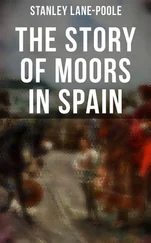Hendrik Loon - The Story of Mankind
Здесь есть возможность читать онлайн «Hendrik Loon - The Story of Mankind» весь текст электронной книги совершенно бесплатно (целиком полную версию без сокращений). В некоторых случаях можно слушать аудио, скачать через торрент в формате fb2 и присутствует краткое содержание. Год выпуска: 2000, Издательство: Electronic Text Center. University of Virginia Library., Жанр: Старинная литература, на английском языке. Описание произведения, (предисловие) а так же отзывы посетителей доступны на портале библиотеки ЛибКат.
- Название:The Story of Mankind
- Автор:
- Издательство:Electronic Text Center. University of Virginia Library.
- Жанр:
- Год:2000
- ISBN:нет данных
- Рейтинг книги:3 / 5. Голосов: 1
-
Избранное:Добавить в избранное
- Отзывы:
-
Ваша оценка:
- 60
- 1
- 2
- 3
- 4
- 5
The Story of Mankind: краткое содержание, описание и аннотация
Предлагаем к чтению аннотацию, описание, краткое содержание или предисловие (зависит от того, что написал сам автор книги «The Story of Mankind»). Если вы не нашли необходимую информацию о книге — напишите в комментариях, мы постараемся отыскать её.
The Story of Mankind — читать онлайн бесплатно полную книгу (весь текст) целиком
Ниже представлен текст книги, разбитый по страницам. Система сохранения места последней прочитанной страницы, позволяет с удобством читать онлайн бесплатно книгу «The Story of Mankind», без необходимости каждый раз заново искать на чём Вы остановились. Поставьте закладку, и сможете в любой момент перейти на страницу, на которой закончили чтение.
Интервал:
Закладка:
But in the year 1804, Napoleon made himself Hereditary Emperor of the French and sent for Pope Pius VII to come and crown him, even as Leo III, in the year 800 had crowned that other great King of the Franks, Charlemagne, whose example was constantly before Napoleon's eyes.
Once upon the throne, the old revolutionary chieftain became an unsuccessful imitation of a Habsburg monarch. He forgot his spiritual Mother, the Political Club of the Jacobins. He ceased to be the defender of the oppressed. He became the chief of all the oppressors and kept his shooting squads ready to execute those who dared to oppose his imperial will. No one had shed a tear when in the year 1806 the sad remains of the Holy Roman Empire were carted to the historical dustbin and when the last relic of ancient Roman glory was destroyed by the grandson of an Italian peasant. But when the Napoleonic armies had invaded Spain, had forced the Spaniards to recognise a king whom they detested, had massacred the poor Madrilenes who remained faithful to their old rulers, then public opinion turned against the former hero of Marengo and Austerlitz and a hundred other revolutionary battles. Then and only then, when Napoleon was no longer the hero of the revolution but the personification of all the bad traits of the Old Régime, was it possible for England to give direction to the fast-spreading sentiment of hatred which was turning all honest men into enemies of the French Emperor.
The English people from the very beginning had felt deeply disgusted when their newspapers told them the gruesome details of the Terror. They had staged their own great revolution (during the reign of Charles I) a century before. It had been a very simple affair compared to the upheaval of Paris. In the eyes of the average Englishman a Jacobin was a monster to be shot at sight and Napoleon was the Chief Devil. The British fleet had blockaded France ever since the year 1798. It had spoiled Napoleon's plan to invade India by way of Egypt and had forced him to beat an ignominious retreat, after his victories along the banks of the Nile. And finally, in the year 1805, England got the chance it had waited for so long.
Near Cape Trafalgar on the southwestern coast of Spain, Nelson annihilated the Napoleonic fleet, beyond a possible chance of recovery. From that moment on, the Emperor was landlocked. Even so, he would have been able to maintain himself as the recognised ruler of the continent had he understood the signs of the times and accepted the honourable peace which the powers offered him. But Napoleon had been blinded by the blaze of his own glory. He would recognise no equals. He could tolerate no rivals. And his hatred turned against Russia, the mysterious land of the endless plains with its inexhaustible supply of cannon-fodder.
As long as Russia was ruled by Paul I, the half-witted son of Catherine the Great, Napoleon had known how to deal with the situation. But Paul grew more and more irresponsible until his exasperated subjects were obliged to murder him (lest they all be sent to the Siberian lead-mines) and the son of Paul, the Emperor Alexander, did not share his father's affection for the usurper whom he regarded as the enemy of mankind, the eternal disturber of the peace. He was a pious man who believed that he had been chosen by God to deliver the world from the Corsican curse. He joined Prussia and England and Austria and he was defeated. He tried five times and five times he failed. In the year 1812 he once more taunted Napoleon until the French Emperor, in a blind rage, vowed that he would dictate peace in Moscow. Then, from far and wide, from Spain and Germany and Holland and Italy and Portugal, unwilling regiments were driven northward, that the wounded pride of the great Emperor might be duly avenged. The rest of the story is common knowledge. After a march of two months, Napoleon reached the Russian capital and established his headquarters in the holy Kremlin. On the night of September 15 of the year 1812, Moscow caught fire. The town burned four days. When the evening of the fifth day came, Napoleon gave the order for the retreat. Two weeks later it began to snow. The army trudged through mud and sleet until November the 26th when the river Berezina was reached. Then the Russian attacks began in all seriousness. The Cossacks swarmed around the ``Grande Armée'' which was no longer an army but a mob. In the middle of December the first of the survivors began to be seen in the German cities of the East.
Then there were many rumours of an impending revolt. ``The time has come,'' the people of Europe said, ``to free ourselves from this insufferable yoke.'' And they began to look for old shotguns which had escaped the eye of the ever-present French spies. But ere they knew what had happened, Napoleon was back with a new army. He had left his defeated soldiers and in his little sleigh had rushed ahead to Paris, making a final appeal for more troops that he might defend the sacred soil of France against foreign invasion.
Children of sixteen and seventeen followed him when he moved eastward to meet the allied powers. On October 16, 18, and 19 of the year 1813, the terrible battle of Leipzig took place where for three days boys in green and boys in blue fought each other until the Elbe ran red with blood. On the afternoon of the 17th of October, the massed reserves of Russian infantry broke through the French lines and Napoleon fled.
Back to Paris he went. He abdicated in favour of his small son, but the allied powers insisted that Louis XVIII, the brother of the late king Louis XVI, should occupy the French throne, and surrounded by Cossacks and Uhlans, the dull-eyed Bourbon prince made his triumphal entry into Paris.
As for Napoleon he was made the sovereign ruler of the little island of Elba in the Mediterranean where he organised his stable boys into a miniature army and fought battles on a chess board.
But no sooner had he left France than the people began to realise what they had lost. The last twenty years, however costly, had been a period of great glory. Paris had been the capital of the world. The fat Bourbon king who had learned nothing and had forgotten nothing during the days of his exile disgusted everybody by his indolence.
On the first of March of the year 1815, when the representatives of the allies were ready to begin the work of unscrambling the map of Europe, Napoleon suddenly landed near Cannes. In less than a week the French army had deserted the Bourbons and had rushed southward to offer their swords and bayonets to the ``little Corporal.'' Napoleon marched straight to Paris where he arrived on the twentieth of March. This time he was more cautious. He offered peace, but the allies insisted upon war. The whole of Europe arose against the ``perfidious Corsican.'' Rapidly the Emperor marched northward that he might crush his enemies before they should be able to unite their forces. But Napoleon was no longer his old self. He felt sick. He got tired easily. He slept when he ought to have been up directing the attack of his advance- guard. Besides, he missed many of his faithful old generals. They were dead.
Early in June his armies entered Belgium. On the 16th of that month he defeated the Prussians under Blücher. But a subordinate commander failed to destroy the retreating army as he had been ordered to do.
Two days later, Napoleon met Wellington near Waterloo. It was the 18th of June, a Sunday. At two o'clock of the afternoon, the battle seemed won for the French. At three a speck of dust appeared upon the eastern horizon. Napoleon believed that this meant the approach of his own cavalry who would now turn the English defeat into a rout. At four o'clock he knew better. Cursing and swearing, old Blucher drove his deathly tired troops into the heart of the fray. The shock broke the ranks of the guards. Napoleon had no further reserves. He told his men to save themselves as best they could, and he fled.
Читать дальшеИнтервал:
Закладка:
Похожие книги на «The Story of Mankind»
Представляем Вашему вниманию похожие книги на «The Story of Mankind» списком для выбора. Мы отобрали схожую по названию и смыслу литературу в надежде предоставить читателям больше вариантов отыскать новые, интересные, ещё непрочитанные произведения.
Обсуждение, отзывы о книге «The Story of Mankind» и просто собственные мнения читателей. Оставьте ваши комментарии, напишите, что Вы думаете о произведении, его смысле или главных героях. Укажите что конкретно понравилось, а что нет, и почему Вы так считаете.












